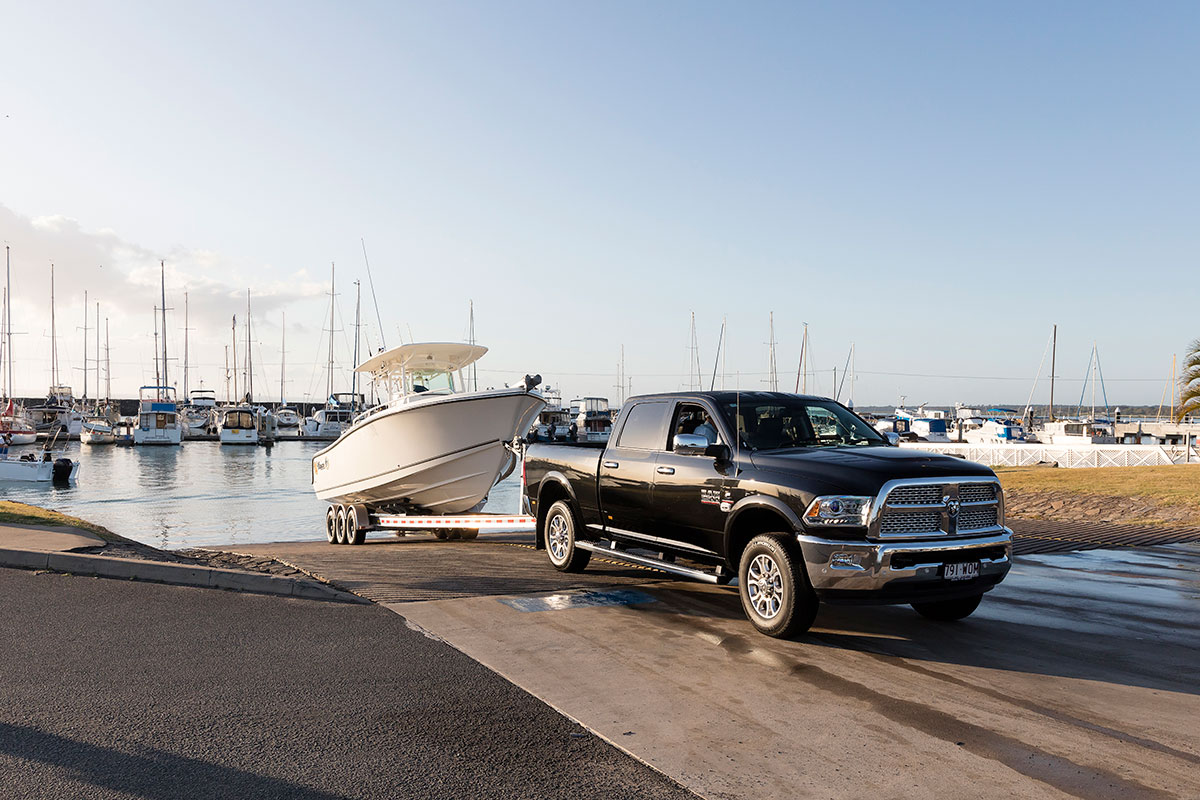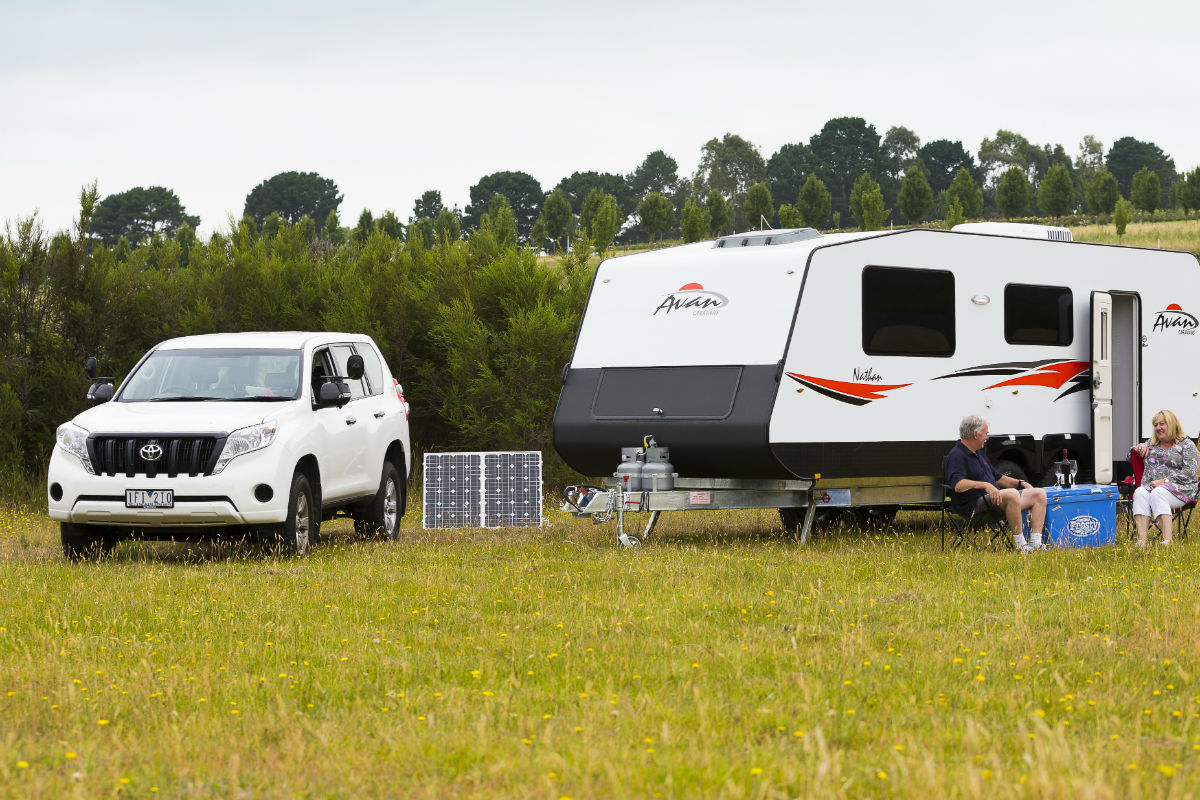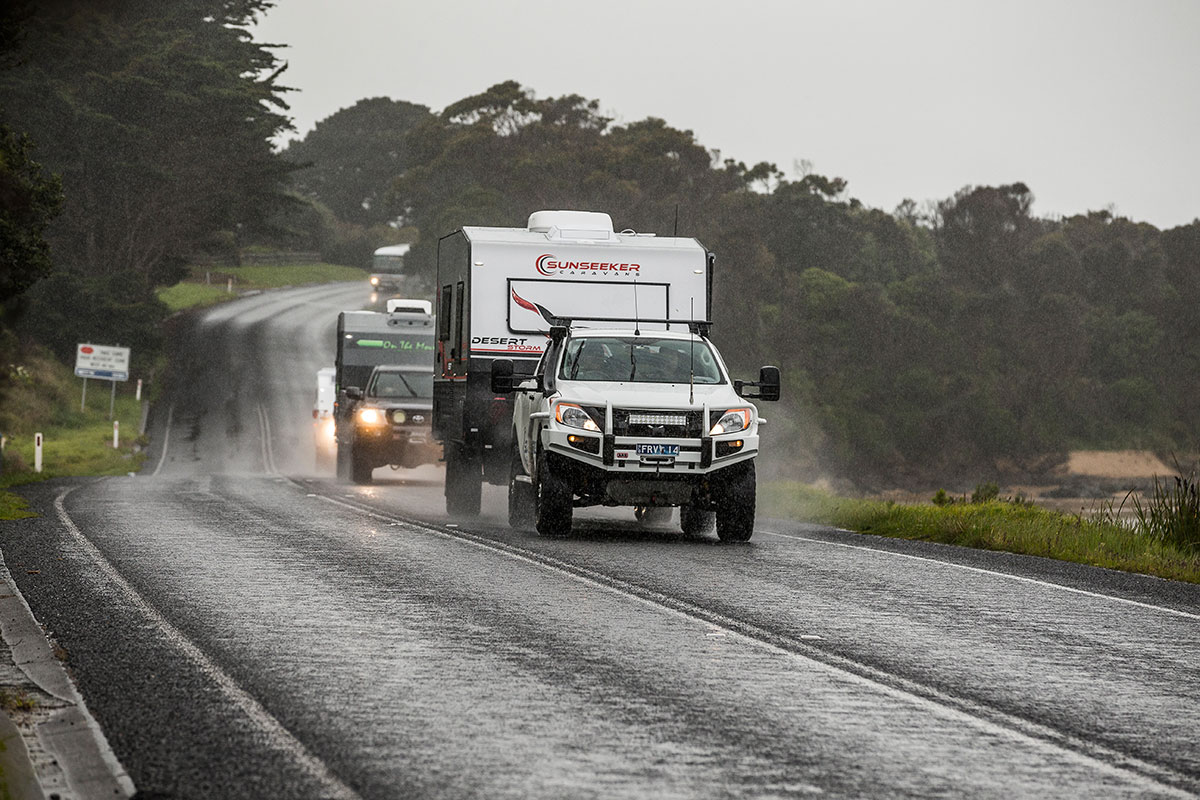It might surprise many people but there are very few regulations that apply to towing, in particular in our case, camper trailers, caravans and just in case you have forgotten them, 5th wheelers. What regulations there are apply mostly to the general construction of caravans, towing weights and things like axle positions. In terms of actually towing, there are really no special requirements – for most people just having a car licence and understanding the road rules is enough. That applies to any tow vehicle that has a Gross Vehicle Mass (GVM) of less than 4500kg. It might surprise a few people to learn that this was not always the case. Up until 1988, all the states had different towing regulations and it was only then after lobbying by the industry, that all the states agreed to implement National towing regulations.
There are a few oddities in the state speed limit department. In Queensland, NSW, Vic, SA, NT, Tasmania and ACT the prevailing speed limit is what counts, that is up to 110km/hr. In Western Australia, the towing speed limit is 100km/hr. That said and particularly in the Northern Territory where there is a maximum speed limit of 130km/hr on some roads, driving safely is what matters. Also, some tow vehicle manufacturers specify a speed limit when towing, in some cases as low as 80km/hr.
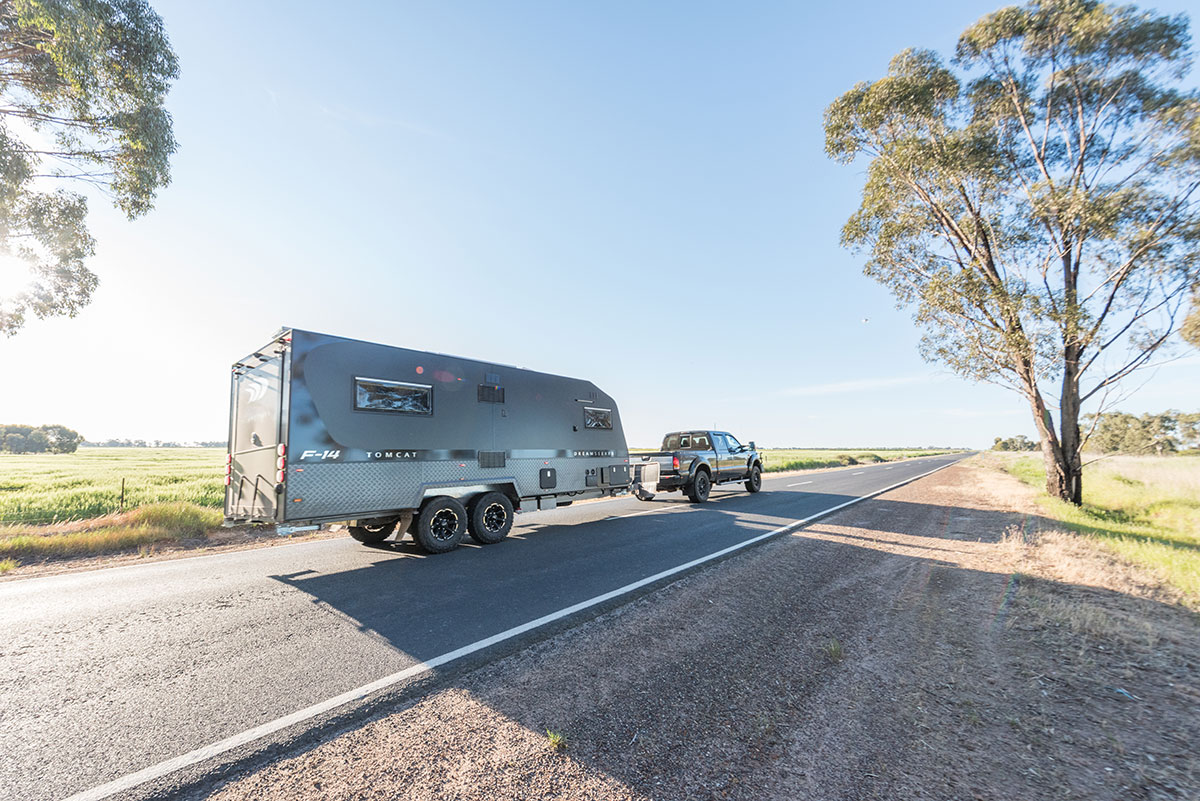
Trailer brakes are required on all trailers with a Gross Trailer Mass (GTM) above 750kg. Most caravans usually have electrically or less commonly, hydraulically operated brakes. However, trailers with a GTM up to 2000kg can have mechanically operated override brakes. In NSW, at least, trailers in the 2001kg – 4500kg ATM category must have an automatic breakaway system fitted with a separate battery. Above a GTM of 4500kg, air brakes are mandatory in all states.
There are a number of Australian Design Rules that apply to caravans or trailers in general but that is all handily covered in a document entitled Vehicle Standards Bulletin 1 (VSB 1) which covers trailers with an Aggregate Trailer Mass (ATM) – total loaded weight of less than 4500kg.That includes single and tandem trailers, caravans, pig trailers (steerable front axle) and goose neck trailers, aka 5th wheelers. Away from VSB-1 there are at least three other essential standards that apply – AS/NZS 3000:2007 AS/NZS 3001:2008 (both electrical standards) and AS/NZS 5601 1 & 2: 2013 (LP Gas installations).
VSB1 is a very handy document for the budding caravan designer. It covers axle positions, habitation doors, overhang lengths, couplings, safety chains, electrical wiring, light and reflector positions, dimensions and weights. There are a few size restrictions, like for instance no trailer can be wider than 2.5m (8ft 2.5in), taller than 4.3m (14ft) and have an overhang which is greater than the distance between the coupling and wheels or 3.7m, whichever is the lesser.
Undoubtedly the thing that catches most RV travellers out is in the weight department, specifically being overweight. That’s covered more thoroughly elsewhere in this website but the short version is that the caravan manufacturers specify the Aggregate Trailer Mass (ATM) that is the maximum loaded weight of the trailer. The tare mass is the unladen (dry, ie all tanks empty) of a caravan and the payload is obtained by subtracting the tare mass from the ATM. Tow vehicle manufacturers specify the maximum towing mass (including the tow ball mass, aka “ball weight”), the maximum tow ball mass (ie weight on the tow ball) and also the Gross Combined Mass (GCM), that is the maximum weight of the towing combination. It’s the last item, the GCM, that is causing the most confusion in recent times because quite a few ute manufacturers are specifying a 3500kg towing capacity and at the same time a 6000kg GCM, which is making the 3500kg rating not always practical.
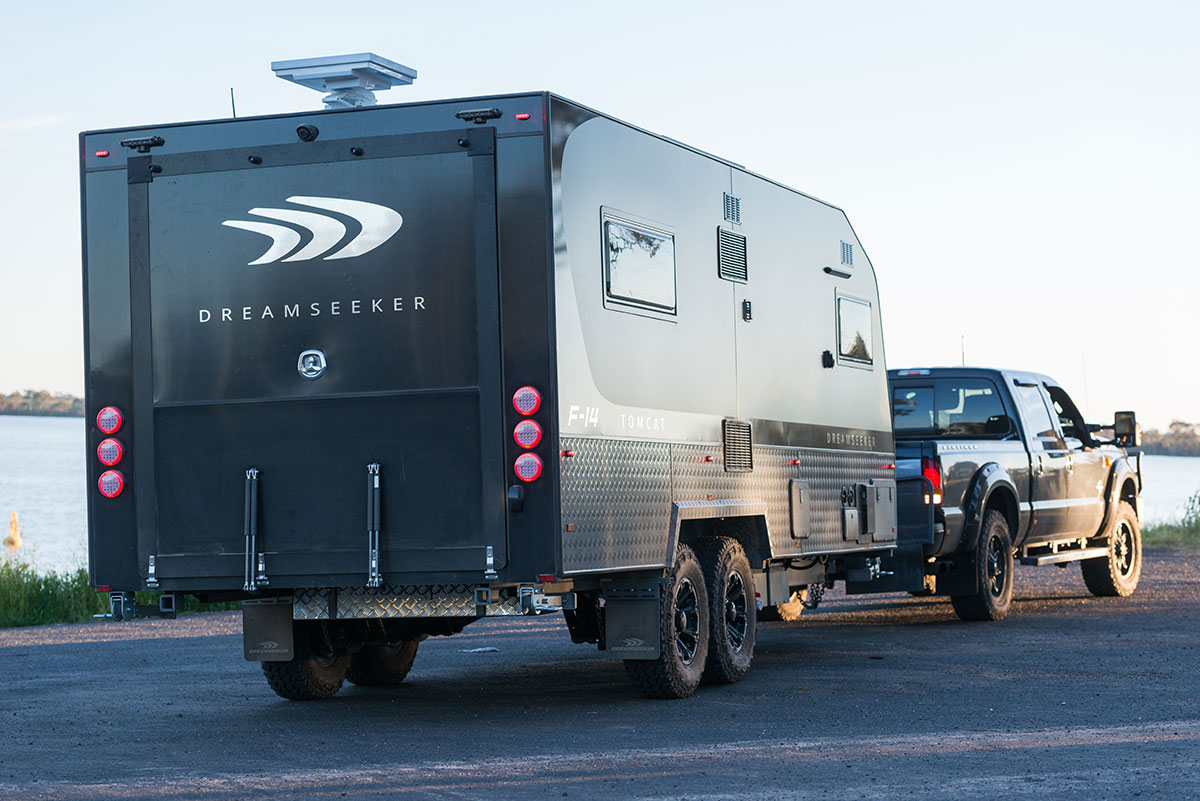
Will there be much change in any of these regulations in the near future? I suspect not. Although what might well happen is certain regulations will be increasingly enforced, not only by state transport authorities but also within the manufacturing industry.
One item that is drawing attention is the aforementioned weight matters. Already in Qld, there have been some efforts by the state organisation, Caravanning Qld to work in conjunction with the Department of Transport to undertake free safety checks, including weighing caravans. Other states are showing interest and that can only be a good thing.
Something that gets bandied around from time to time is the issue of requiring a licence for caravan towing. It’s being resisted but if there’s an increasing spate of caravanning accidents, particularly rollovers, then watch this space. Not having a caravan towing licence is an odd anomaly, because if a motorhome has a GVM over 4500kg, then a Light Rigid truck licence is required. Yet, a caravan tow combination can have a GCM easily over 6000kg and be less stable than a rigid chassis truck. Even slightly weirder happens with 5th wheelers. It’s possible to legally drive something like an Iveco Daily truck on a normal car licence, yet the GCM can be something like 8500kg…
It’s also possible, given the increasing weights of caravans, that there may be legislative requirements introduced over the mandatory fitting of electronic brake control systems like AL-KO’s Electronic Stability Control (ESC). I’m not going to predict something like that but even if not, just like caravan towing courses and getting a weigh bridge check on caravan weights, they are still a very good idea.
MEET THE AUTHOR

Malcolm Street
Malcolm Street began caravanning in the early 1970s, first in a Viscount and later in a York, the former towed by a Holden Kingswood. Malcolm has RV’d extensively across Australia, New Zealand and Britain. He became an RV journalist in 1999. Each year, he reviews around 40 caravans and motorhomes in Oz and NZ. Yes, he’s a well-travelled bloke with no shortage of campfire opinions about how a given caravan could be better put together.

